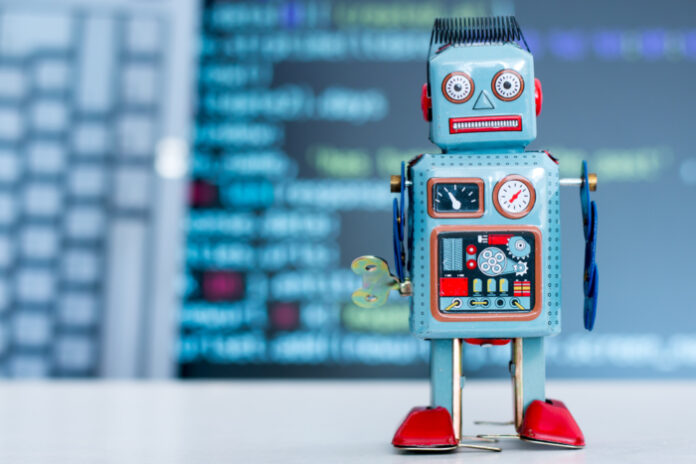Your website’s performance is crucial. If it is poor, chances are that you are losing a significant amount of money due to potential customers quickly leaving your site. This is why you need to ensure that your website performs as fast and smoothly as possible. Several factors can affect the performance of a website, including server/hosting, image & file size, browser caching, bot attack protection, etc.
In this article, we are going to focus on bot attacks. We’ll discuss:
- What are bot attacks?
- Why do bot attacks occur?
- How do bot attacks affect website performance?
- How to stop bot attacks and increase your site’s performance.
So, without wasting more time, let’s get started.
What are bot attacks?
A bot attack is a type of cyberattack in which malicious programs automatically run to cause site disruption, steal data, make fraudulent purchases, or carry out other malicious tasks. These attacks can be used against numerous targets, including servers, websites, APIs, and other endpoints. These attacks can have a variety of objectives but frequently involve stealing confidential data or harming the target’s infrastructure.
Bot attacks can potentially destroy a business or organization, resulting in significant and expensive downtime, lost income, and reputational harm.
There are various kinds of bot attacks, including credential stuffing, web/content scraping, DoS and DDoS attacks, Brute force password cracking, etc. All of these bot attacks are designed for a specific purpose.
Why do bot attacks happen?
There are plenty of reasons why bot attacks occur. Attackers can use bot attacks to get personal or financial data that can be sold for money on the dark web. Bot attacks can also target web services, including social media or e-commerce websites, disrupting their operations and possibly resulting in losses. These attacks can also occasionally be used to coerce victims into paying for ransomware. Finally, hackers may use bot attacks to interfere with the functioning of a specific government agency or group.
Ways that bot attacks can impact the performance of a website
Here are various ways through which bot attacks can hurt your website performance.
Increased loading time
Bot attacks frequently entail sending many requests to a website at once. This way, the server may get overloaded as a result of a significant surge in traffic. Legitimate users may encounter timeouts, delayed loading times, or, under severe circumstances, the website may become completely inaccessible when the server’s resources run out.
It can affect the website’s speed
Bot assaults can considerably slow down website performance due to the sheer volume of requests they make. The load times for authentic users grow as the server becomes overwhelmed with queries. Pages that load slowly irritate users, leading to a bad user experience and even driving them away from the website.
Can cause issues with website application performance
Bots can cause performance problems by targeting particular vulnerabilities in web applications. For example, a bot may continuously try to use brute-force attacks or security flaws in login forms to obtain illegal access. These actions raise the risk of app instability, increase server load, and compromise security.
Can impact SEO and search engine rankings
A website’s search engine rankings may suffer from persistent bot attacks. When search engines identify anomalous activity, such as a sudden spike in malicious bot traffic, they may penalize the target page. Reduced organic traffic due to a drop in search engine rankings might impact the website’s overall performance and visibility.
How to prevent bot attacks and increase your website performance
Here are measures to prevent and block bot attacks that can hurt your website’s performance.
Invest in a bot mitigation solution
One of the most critical steps in curbing bot attacks on your website is to invest in effective bot detection and mitigation software to protect your website. In the past, you could use in-house solutions and WAF rules to achieve protection from bot attacks. But this is no longer the case because today, you must be equipped with highly specialized know-how to detect malicious bots. Investing in the best software solution to never worry about bot attacks on your website is highly recommended.
Monitor your traffic
You should also be keen on your website traffic. A traffic spike for a relatively short duration can indicate bot activity. Also, be wary of traffic from suspicious sources, i.e., those not from Google searches or users clicking your ads. A spike in bounce rate could also be a sign of bad bots.
Block data center Ips
While it holds true that most adept attackers have shifted towards intricate networks and servers, numerous less proficient cybercriminals continue to depend on hosting and proxy servers. These, however, are susceptible to prevention measures and have been subject to various attacks previously. Obtain a roster of acknowledged data center IP addresses and employ them for blocking or implementing CAPTCHA mechanisms on requests.
Conclusion
Bot attacks can severely hurt your website performance, leading to numerous problems, such as increased server load, slow loading times, and compromised security. But with the right strategies, such as investing in a bot mitigation solution, paying attention to your website traffic, and blocking data center IPs, you can curb bot attacks and enhance your website performance.
Find a Home-Based Business to Start-Up >>> Hundreds of Business Listings.

















































